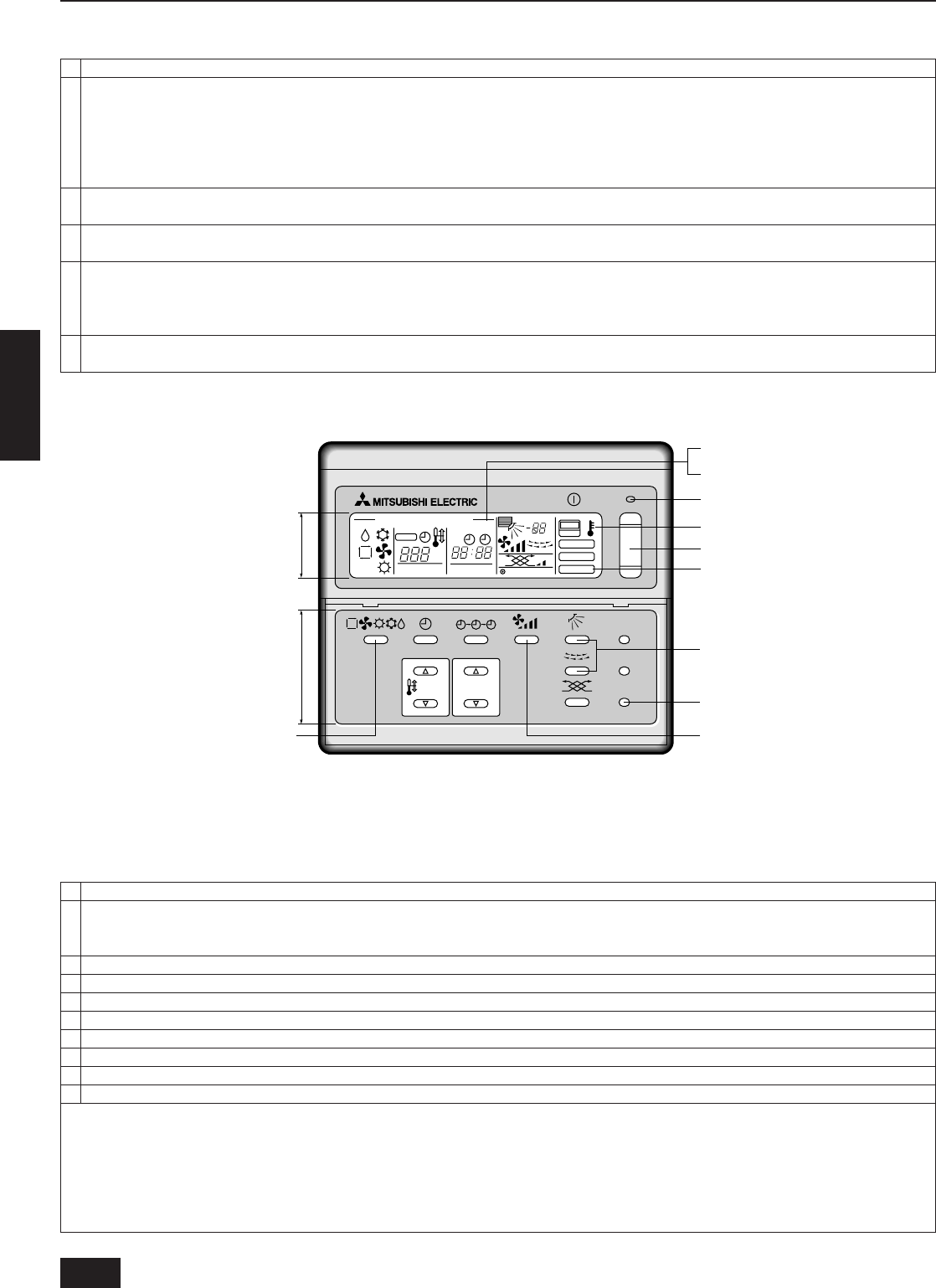
34
ENGLISH
12. Test run
12.1. Checking before getting test run
1 Check to see whether there are refrigerant leakage, and slack of power or transmission cable.
2
Confirm that 500 V megger shows 1.0 MΩ or more between power supply terminal block and ground. Do not operate in the case of 1.0 MΩ or less.
NOTE: Never carry out megohm check over terminal control board. Otherwise the control board would be broken.
Immediately after mounting the unit or after leaving it turned off for an extended length of time, the resistance of the insulation between the power
supply terminal board and the ground may decrease to approx. 1.0 MΩ as a result of refrigerant accumulating in the internal compressor.
If the insulation resistance is more than 1.0 MΩ, turning on the main power supply and energizing the crankcase heater for more than 12
hours will cause the refrigerant to evaporate, increasing the insulation resistance.
3
Check to see whether both gas and liquid valves are fully open.
NOTE: Be sure to tighten caps.
4
Check the phase sequence and the voltage between phases.
NOTE: If the phase sequence is reversed, an error (4103) may occur when a test run is made, causing the unit to stop.
5
If a transmission booster is connected:
Turn transmission booster power on the before turning the outdoor unit’s power on.
NOTE 1: If the outdoor unit’s power is turned on first, refrigerant system connection data may not be recognized normally.
NOTE 2: If the outdoor unit’s power is turned on first, reset the outdoor unit’s power after turning the transmission booster power on.
6
Turn on universal power supply at least 12 hours before getting test run in order to carry current to crank case heater. If current-carrying hours are too
short, it may result in a malfunction of compressor.
12.2. Test run method
ON/OFF
–
STAND BY
DEFROST
INDOOR UNIT
ADDRESS NO
ERROR CODE
OA UNIT ADDRESS NO
CENTRALLY CONTROLLED
CLOCK
ON OFF
˚C
1Hr.
NOT AVAILABLE
˚C
CHECK MODE
FILTER
CHECK
TEST RUN
ON OFFCLOCK
FILTER
CHECK
TEST RUN
REMOTE CONTROLLER
PAR-F25MA
TEMP. TIMER SET
D
E
A
F
G
I
J
H
K
L
B
C
A Display panel
B Control panel
C Cooling/Heating select button 3, 4
D Check code indicator (see note 1)
E Test run remaining time indicator (see note 3)
F ON/OFF LED (lights up in operation)
G Indoor unit liquid pipe temperature indicator (see note 4)
H ON/OFF button 9
I Test run indicator
J Wind adjust button 6
K Test run button 2
L Air blow adjust button 5
Operation procedure
1
Turn on universal power supply at least 12 hours before getting started → displaying “HO” on display panel for about two minutes. The universal
power supply must be left on for at least 12 hours (with the crank case heater turned on). If a transmission booster is connected, turn transmission
booster power on the before turning the outdoor unit’s power on.
2 Press [TEST RUN] button twice → displaying “TEST RUN” on display panel.
3 Press [Cooling/Heating] select button → make sure that air is blowing out.
4 Press [Cooling/Heating] select button to change from cooling to heating operation, and vice versa → make sure that warm or cold air is blowing out.
5 Press [Wind] adjust button → make sure that air blow is changed.
6 Press [Up/Down Wind] or [Louver] button to change wind → Make sure that horizontal or downward blow is adjustable.
7 → Make sure that indoor unit fans operate normally.
8 Make sure that interlocking devices such as ventilator operate normally if any.
9 Press [ON/OFF] button to cancel test run → Stop operation.
NOTE 1: If check code is displayed on remote controller or remote controller does not operate normally, see page
35
or further.
NOTE 2: Test run automatically stops operating after two hours by activation of timer set to two hours.
NOTE 3: During test run, test run remaining time is displayed on time display section.
NOTE 4: During test run, temperature of liquid pipe in indoor unit is displayed on remote controller room temp. display section.
NOTE 5: When pressing [Wind] adjust button, depending on the model, “This function is not available” may be displayed on remote controller. However,
it is not a malfunction.
NOTE 6: If the outdoor temperature is low, the unit may not operate for up to 4 hours.


















